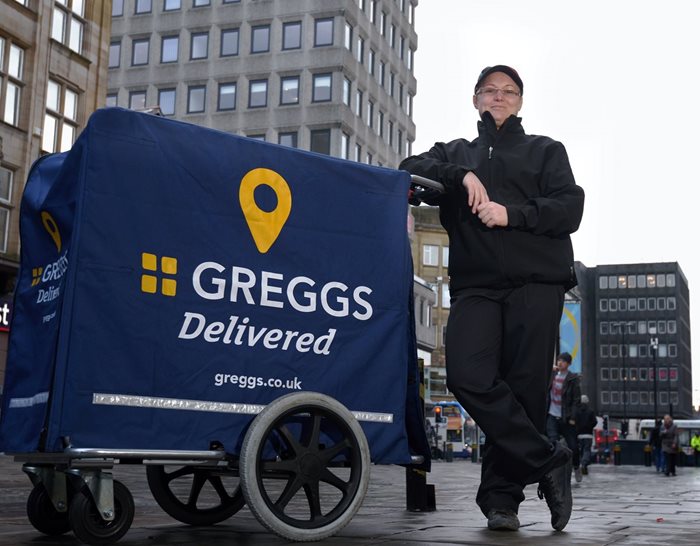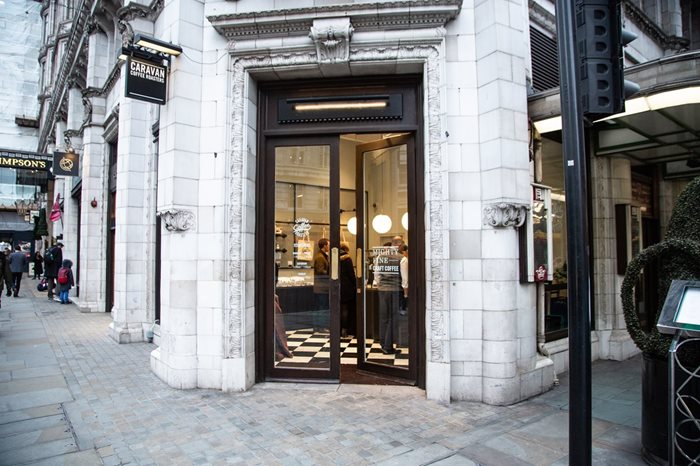2020 will be a crucial year for the UK coffee shop segment as operators grapple with the ramifications of Brexit, seek to consolidate 2019’s M&A activity, and maintain customer loyalty in a fiercely competitive market. Based on analysis from Allegra’s Project Café UK 2020 report, here are five market dynamics that will shape the £10.5bn UK café market in the year ahead
.jpg.aspx?width=700&height=466)
The total UK coffee shop market is now worth over £10.5bn but the rate of growth has slowed over the last 12 months – 1.6% down from 5.4% in 2018
1. Tough trading continues – but coffee quality is king
UK retailers endured significant trading pressures during 2019, with the British Retail Consortium and KPMG recording total sales growth of just 0.1% – the lowest since records began in 1995. While the UK coffee shop market continues to
outperform the wider economy, lowered outlet growth of 1.6% – down from 5.4% in 2018 – reflects sustained challenging trading. UK market leader, Costa Coffee, opened over 60% fewer stores than in 2018, while Starbucks opened just three net new stores in 2019.
The ramifications of Brexit on investment and staff recruitment, coupled with a 6.2% National Living Wage increase and the rising cost of property could all converge to impede café segment performance in 2020. This concern is reflected among industry leaders surveyed by World Coffee Portal, who cited the cost of property, staffing, and the impact of Brexit as the top three challenges facing their businesses currently.
In a challenging UK economy, consumers surveyed in 2019 now place coffee quality ahead of convenient location when choosing a café. This demonstrates the imperative for operators to match rising expectations in the UK’s increasingly crowded coffee shop market in order to stay competitive.
-25.jpg.aspx?width=700&height=466)
The US coffee roaster and café concept chain, Roasting Plant, made its UK debut in London in 2019 | Photo: Tom Bird
2. M&A, consolidation and foreign investment
The UK branded coffee shop market has experienced a flurry of M&A activity over the last 2-3 years, with several major deals occurring in 2019. In January Coca-Cola finalised its £3.9bn
acquisition of market leader, Costa Coffee. That month also saw Caffè Nero, the UK’s third-largest coffee chain, acquire a
majority stake in Coffee#1’s 90+ store portfolio. In May, JAB Holdings-controlled Pret A Manger acquired 90-strong high-street rival, EAT with a view to converting those stores into the ‘
Veggie Pret’ concept during 2020.
The UK coffee shop landscape will shift further in 2020 as major brands bed-in recent M&A activity. International entrants, including %Arabica, Filli Tea n’Talk, Gloria Jean’s Coffees, Ministry of Coffee, Omotesando Koffee, and
The Roasting Plant, will also seek to cement their positions in the coming year.
Reflecting the global trend in coffee market consolidation, World Coffee Portal anticipates further UK coffee shop investment by major international businesses in the coming 2-3 years, with major brands continuing to lead outlet expansion in 2020 as competition intensifies.

Nearly one fifth of UK consumers frequently request a dairy-alternative milk with their coffee shop beverage
3. Sustainability and plant-based menus
2019 saw the climate emergency, plastic waste, and the environmental impact of meat and dairy agriculture, dominate UK headlines. These concerns were reflected in the coffee shop segment, where industry leaders surveyed cited environmental considerations as the most important consumer trend – rising from third place in 2018.
Reducing reliance on plastic packaging, ensuring proper recycling is conducted and greater supply chain transparency were identified as the top three initiatives that UK coffee shops should widely adopt to address sustainability challenges in 2020 and the coming decade.
This attitude is reflected in growing efforts to reduce single-use waste, such as a Costa Coffee-led
initiative with Caffè Nero, Greggs, McDonald’s, Pret A Manger, and sustainability compliance service, Valpak, to recycle 500 million takeaway coffee cups by 2020. Boston Tea Party remains the only major branded chain to have removed disposable cups in-store, with discounted coffee still the most common way to encourage re-usable cup usage in the UK.
UK consumers spent some £1.3bn on vegan and vegetarian products in 2019, with Greggs’ phenomenally successful vegan sausage roll indicative of a growing trend toward plant-based menus. Furthermore, nearly one fifth of UK consumers
surveyed by World Coffee Portal frequently request a dairy-alternative milk with their coffee shop beverage. The growing importance of a core dairy alternative milk offer is evident in Costa Coffee’s and Pret A Manger’s removal of plant-based milk surcharges, with World Coffee Portal noting the growing popularity of oat-milk in the UK.

Greggs has partnered with Just Eat for nationwide delivery service following a successful trial in 2019
4. New store and trading formats
High operational costs and reduced footfall mean outlet expansion alone is yielding reduced returns for coffee shops. This is compelling many branded coffee chains to diversify menus and introduce new store formats, such as travel kiosks, drive thru, and specialised sub-brands, to stay competitive.
In January 2019, the UK’s largest coffee chain, Costa Coffee, underwent a major brand overhaul to improve in-store experience and highlight its coffee credentials. Introduced at nine pilot sites, the new format will be rolled-out across 1,000 UK stores over the next two years. In August 2019, the UK market leader also launched its first commuter format store in London, aiming to open eight more over the following six months. Reflecting the growing importance of travel hub trade across the market, café and bar concept, Grind, is aiming to establish a 15-site
travel hub portfolio with franchise partner, SSP, by 2022.
Seeking a greater share of the burgeoning plant-based menu category, Pret A Manger is expanding its Veggie Pret store concept, which exclusively stocks vegetarian and vegan items, following the acquisition of the 90+ EAT stores it acquired in May 2019. Meanwhile, food-focused segment market leader, Greggs, is rolling out delivery in partnership with Just Eat across the its UK portfolio following a successful trial in 2019.

Caravan Coffee Roasters took over the Savoy’s Melba café on The Strand in January 2020
5. A new phase of 5th Wave development
5th Wave operators continue to set the pace of UK coffee shop innovation. In 2020 these operators will continue to blur the boundaries between cafés, casual dining, bars and retail – increasing competition with these traditionally insulated market segments.
Demonstrating the growing prestige of 5th Wave operators, in 2020 Active Partners-backed Caravan Coffee Roasters took over The Savoy’s Melba coffee store on The Strand and now supplies the legendary hotel’s coffee. The arrival of the super-premium Le Café Alain Ducasse in London further signifies coffee’s ascension to the realms of haute cuisine.
Blending coffee, casual dining, and cocktails, Grind is another example of a multi-faceted boutique café concept, with a new London roastery expected to support planned growth to 36 stores by 2022. Instagram-friendly Elan Café is also seeking to broaden its market reach, opening its ninth store at St Pancras International, London, in February 2020.
UK coffee shop innovation continues to break traditional market moulds. As 5th Wave operators, such as Daisy Green and Notes Coffee Roasters, further diversify into evening trade, dining and alcohol, the boundaries between premium coffee shops, casual dining, and bars will become increasingly blurred.
